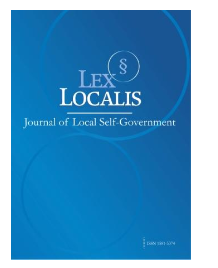THE ROLE OF LOCAL WISDOM “UMA LENGGE” IN ACHIEVING FOOD SOVEREIGNTY AND ASTA CITA IN THE INDIGENOUS COMMUNITY OF NORTH MARIA, BIMA
DOI:
https://doi.org/10.52152/801931Ključne besede:
Cultural preservation, Traditional knowledge, Sustainable agriculture, Traditional food storagePovzetek
This study looks at Uma Lengge, the Bima people's traditional community granary system in North Maria, Indonesia, and how it contributes to food sovereignty and sustainable development. Using a qualitative phenomenological method, this study examines how this local knowledge system addresses food security concerns while retaining cultural values. Field observations and interviews conducted between June and August 2024 revealed that Uma Lengge's three-tiered structure (ro awa, ro woha, and ro ese) and community-based management system not only provide effective food storage but also strengthen social cohesion through shared norms and rituals like Ampa Fare. The study's findings reveal that this historic institution not only ensures year-round food supply, but also represents the concepts of environmental adaptability, communal accountability, and equitable resource allocation. Most notably, this study demonstrates a good match between the Uma Lengge system and Indonesia's Asta Cita development framework, particularly in terms of food self-sufficiency and rural fairness. This study finds that Uma Lengge is a paradigm for combining traditional ecological knowledge with current development approaches, which may contribute significantly to sustainable food systems. The practical consequences include legislative proposals and community-based initiatives to maintain and modify traditional wisdom traditions to meet current demands.
Prenosi
Objavljeno
Številka
Rubrika
Licenca
Avtorske pravice (c) 2025 Lex localis - Journal of Local Self-Government

To delo je licencirano pod Creative Commons Priznanje avtorstva-Nekomercialno-Brez predelav 4.0 mednarodno licenco.








